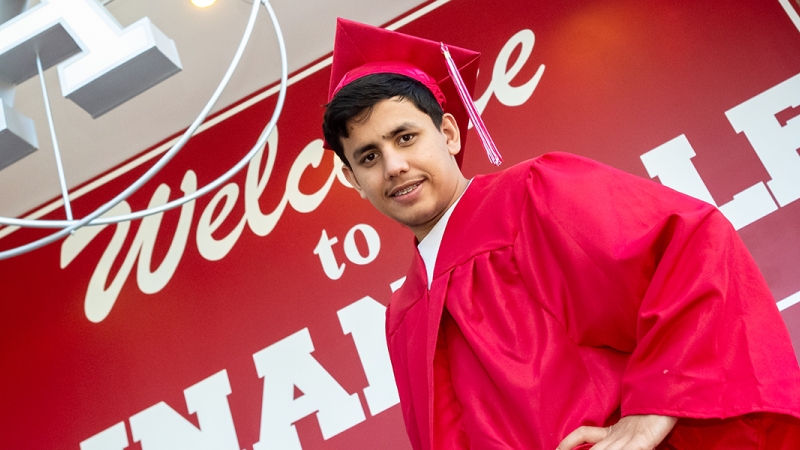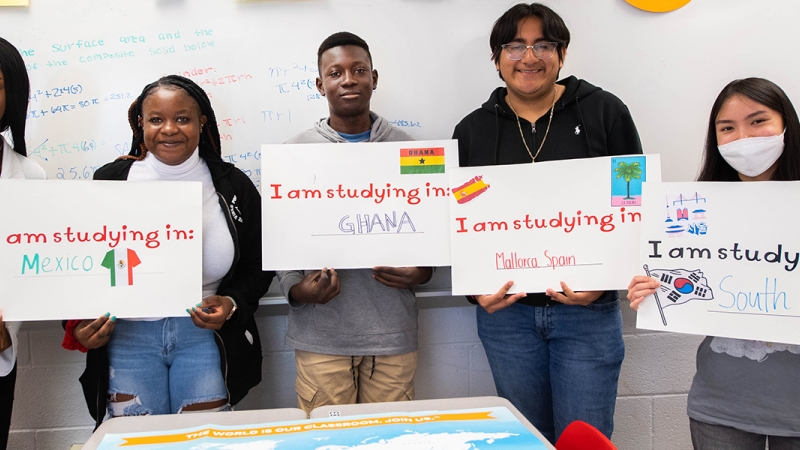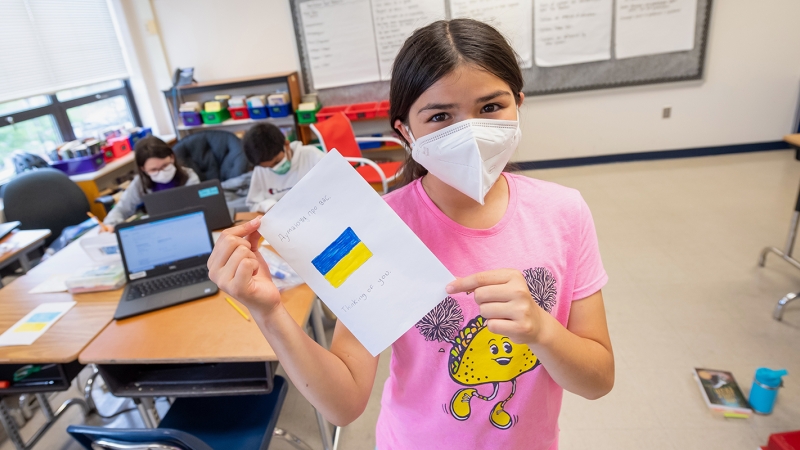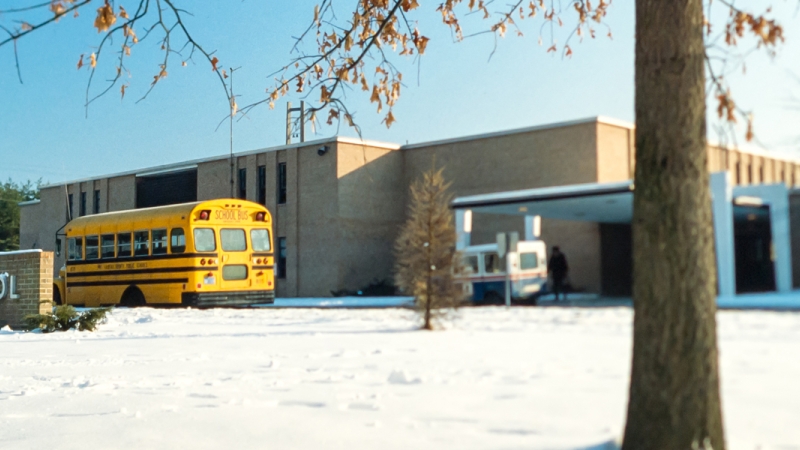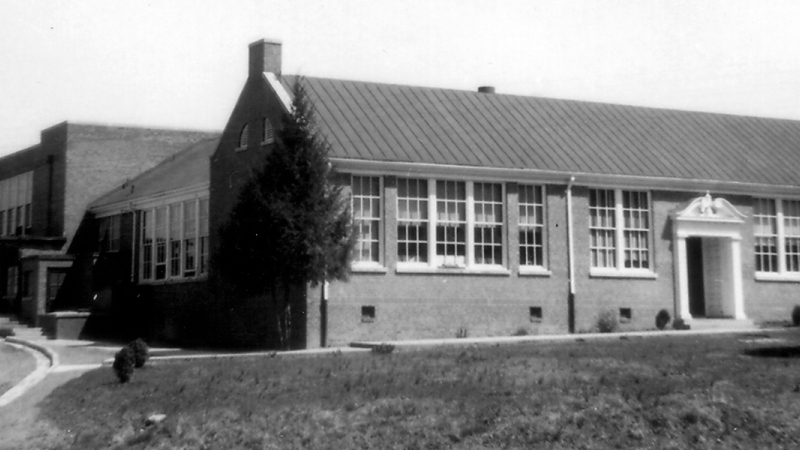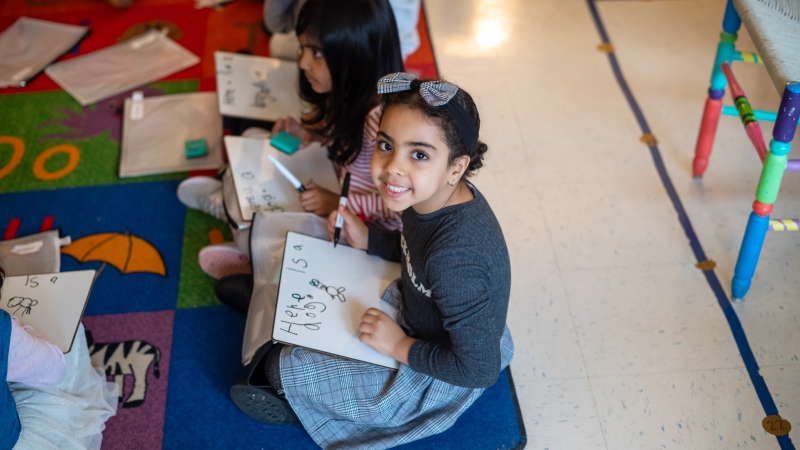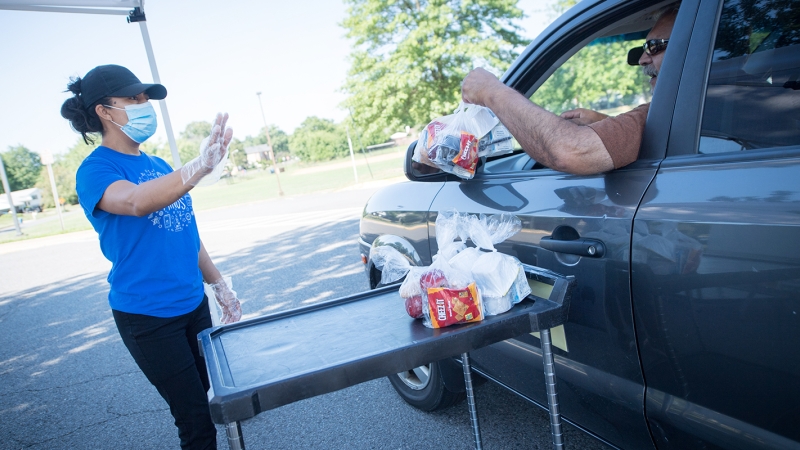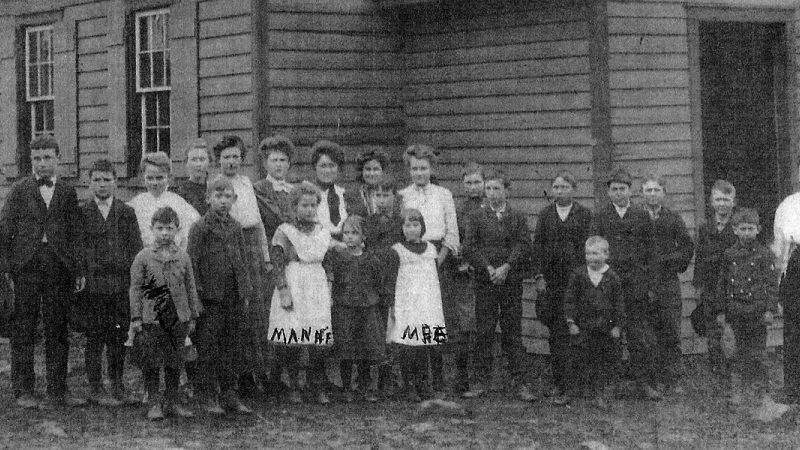
Two FCPS Educators, One Married Couple and A Mission: Helping Refugees
Przemyśl, Poland is an 18 hour trip from W.T. Woodson High School, where Lee Hedrick is a government teacher, and Annandale High School where Meredith Hedrick is chair of the English for Speakers of Other Languages department.
Even so, the married couple and Peace Corps veterans, who made the trek to assist in feeding Ukrainian refugees by volunteering with Jose Andres’ World Central Kitchen, kept Fairfax County Public Schools' “Portrait of a Graduate” goals top of mind.
“We want people to use their education to be changemakers in the future and to help solve problems, assist people in need,” said the Hedricks, who are parents to two FCPS students themselves. “This was a way we tried to live that.”
Struck by images of the Russian invasion of Ukraine, Lee – who served in the Peace Corps in Senegal, and Meredith – who served in Turkmenistan, sought opportunities to help. They settled upon World Central Kitchen, the organization founded by local restaurateur Jose Andres that aims to provide quality meals in response to crisis situations.
Meredith went first: she headed to Poland’s border with Ukraine for 10 days in May, using her own airline miles to fund the flight.
Once there, she logged twelve hour days, working from 9 a.m. to 9 p.m. preparing breakfasts of tea bread and fruit for refugees, then serving a lunch of soup, a hot-cooked entree, with meat, vegetables and a starch over the course of two to three hours before transitioning to dinner service.
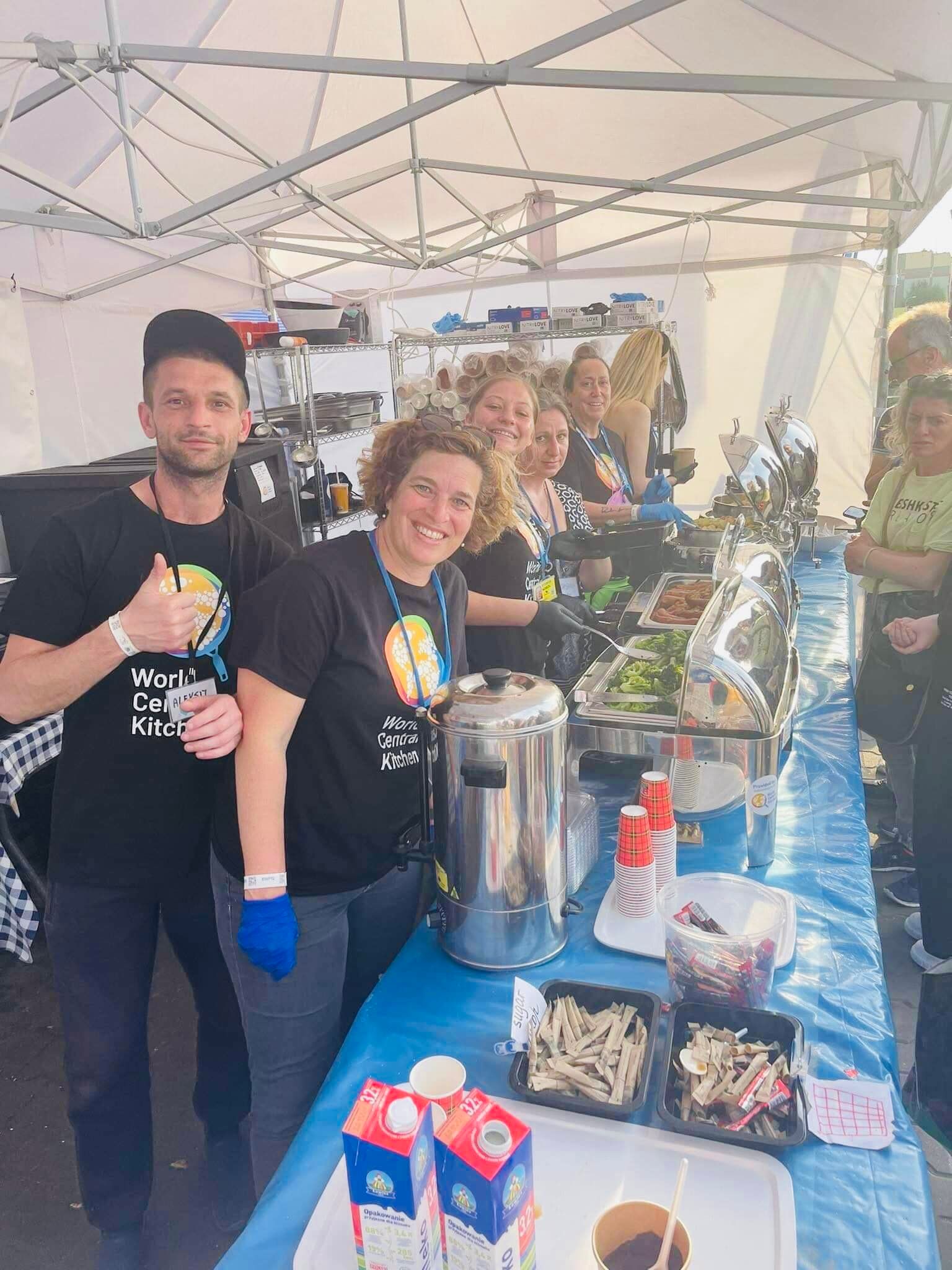
“I said at first to a man, `Do you think I can do this? It's a 12 hour shift,” Meredith says. “He said to me, `I am 72, if I can do this, you can do this. And he was lifting the food bags so I just said ok, I’m doing this.’”
Lee, who made his own personally-funded trip to the border in June, would work his first shift from 9 a.m. to 3 p.m. prepping food in the kitchen, sometimes staying later to prep sandwich sauces for the next day. Then Lee had a night shift as well, heading to the train station to distribute food for dinner until 11:30 p.m. as new refugees arrived and others departed for new homes elsewhere.
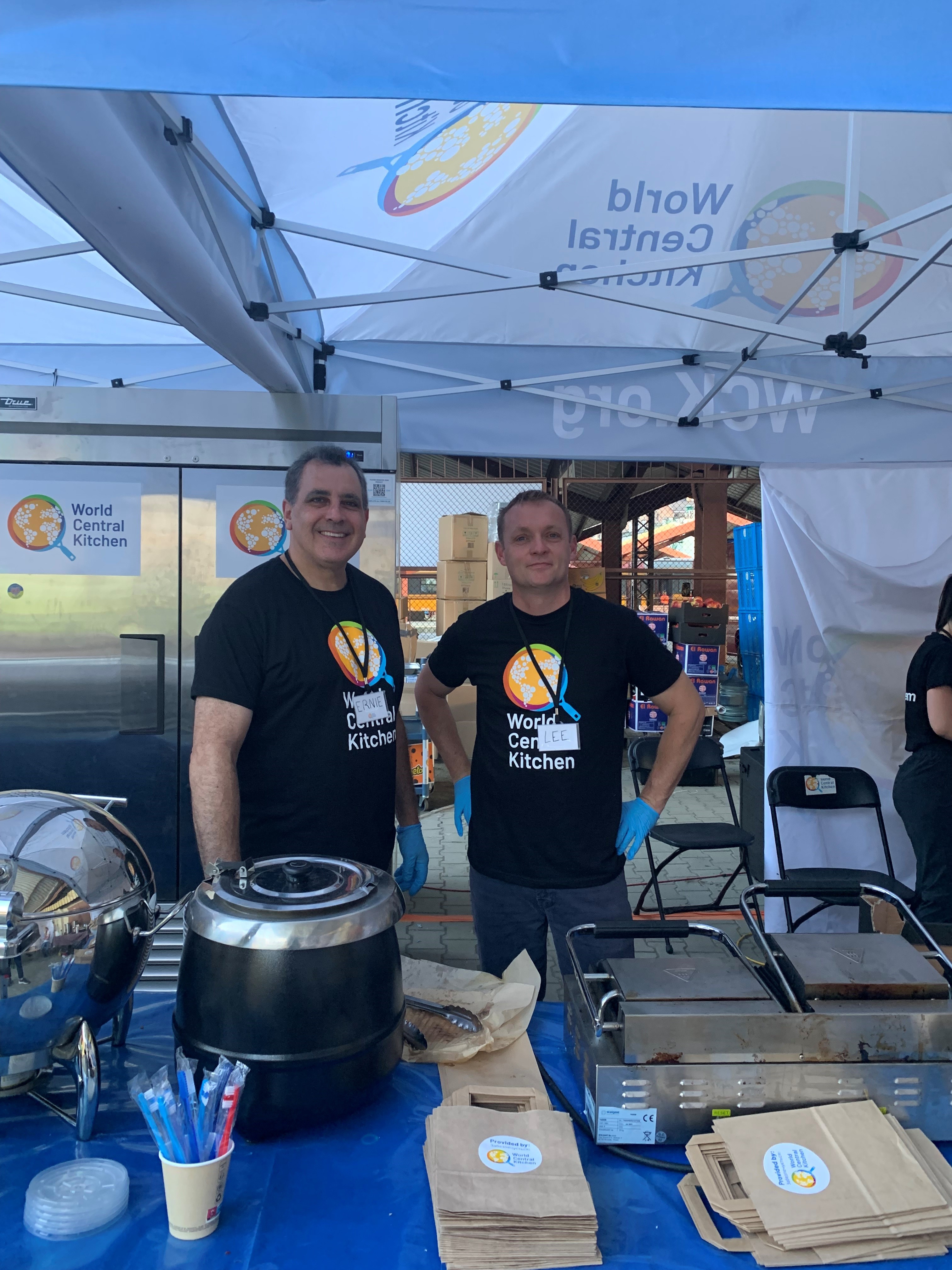
“Here we are in May and June, months after the invasion, and still 24 hours a day, the train station is still packed at all hours,” Lee Hedrick says.
“The lines of refugees waiting to board were all women and children, most fathers had stayed behind to fight, so the mothers couldn’t say ‘Oh honey, hold our spot while I get us some food,’” he explains. “So, we, as volunteers, tried to run up and down that line with food to offer people so they didn’t have to leave their spot in line.”
The Hedricks each brought a sense of fun to their experiences as well, with Lee helping to create “Happy Meals” for kids, including toys like finger puppets in bagged meals to occupy children during the stressful journey.
“My favorite part was distributing toys to the kids and watching their faces light up,” Lee said. “Even the senior citizens appreciated the finger puppets and it put a smile on their face.”
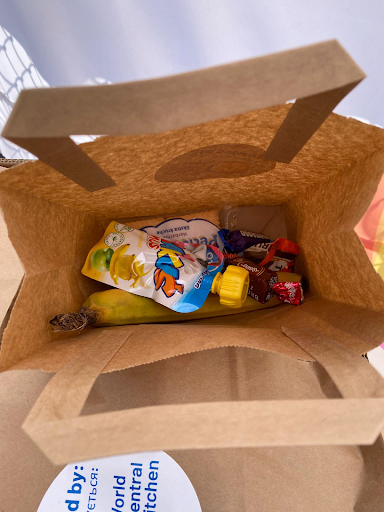
Meredith, meanwhile, engaged in competitions with fellow volunteers to see who could make the most sandwiches in a shift.
Lee says the experience was invaluable to him as a high school government teacher and will factor in his mind as the next school year begins.
“We are always talking about foreign policy tools and the implications of war in the classroom,” he says. “This helped me better understand the direct and indirect consequences of war, what it really is like to be a refugee and what it means to leave with nothing, literally just a bag of belongings per person.”
He said the work will also inform his thoughts on the experiences of other FCPS families, particularly the military community.
“The families we saw were all separated from their fathers, it shows you the toll of war on the individual and the collective community.”
For Meredith, who oversees instruction for English language learners, she will carry with her in the next school year how volunteers from around the world overcame language barriers to work together to deliver aid to refugees.
“The Italian volunteers were responsible for the showers, Denmark managed the animal rescue tent, and the Germans managed the circus tent/play area for kids. We all supported each other,” Meredith says. “We all had to trust each other in their roles while also encouraging each other when it was hard.”
Meredith, who speaks Russian herself from her Peace Corps days, tried to use it when she could. It didn’t matter if her Russian wasn’t perfect, she said. Refugees were grateful for her efforts to communicate.
“English was generally the common language. And hugs,” she says. “I have never had so many hugs in my life.”
